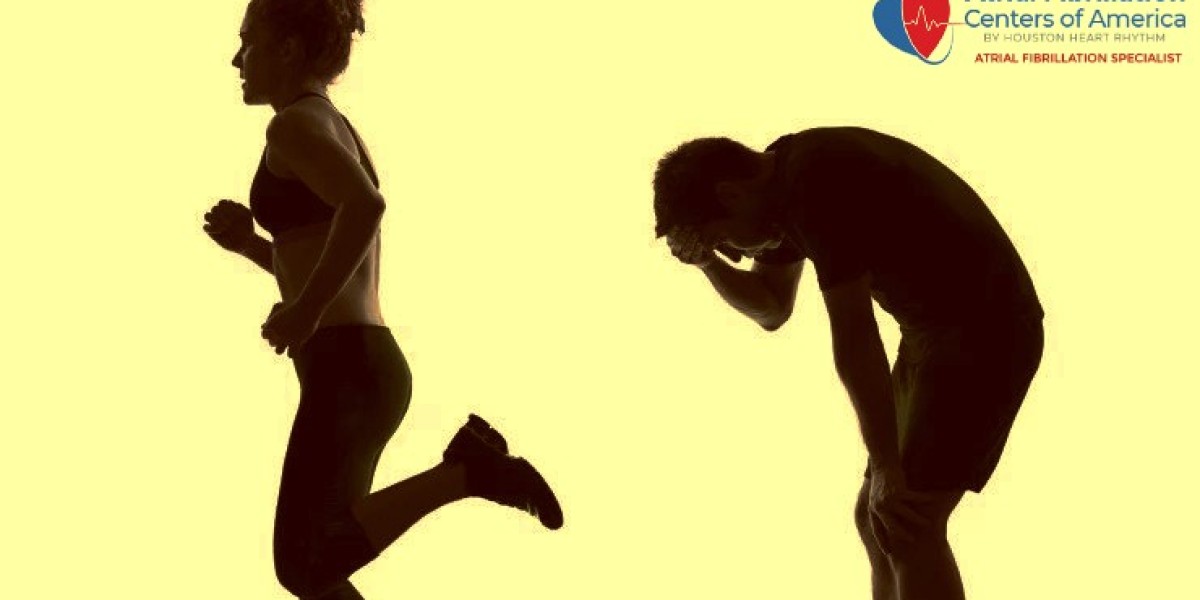Exercise is undoubtedly good for us – it helps control weight, combat diseases, improve mood, and extend life expectancy. However, seemingly counterintuitively, pushing too hard with exercise can actually have negative impacts on both your heart and overall health.
Overexercising can stress the heart muscle, cause rhythm abnormalities, and thicken heart walls. Extreme endurance sports in particular can overload the heart as it struggles to pump enough blood to satisfy muscles’ heightened demand. The heart chambers can stretch and deform, allowing leaks between chambers and potential arrhythmias like atrial fibrillation. These heart issues then raise future risk of more serious cardiovascular complications.
Too much exercise can also lead to fatigue, decreased performance, loss of motivation, insomnia, and increased injury and illness risk. Without proper recovery, muscles and connective tissues break down while inflammation builds. Immune systems are suppressed, undermining our ability to fight viruses and infections. The combination of weakened immune function, oxidative stress, inflammation, and excess cortisol from overtraining can even open the door for autoimmune and chronic diseases.
Exercising Too Much Raises Heart Health Risks
So How Much is Too Much? There are no strict guidelines, as appropriate exercise levels depend heavily on age, fitness level, genetics, and type of activity. But warning signs of overtraining syndrome include persistent muscle soreness, performance plateaus, lack of energy, changes in heart rate variability, and constant illnesses and injuries. Experts suggest increasing training volume by no more than 10% per week as an informal rule of thumb.
Moderation and rest are just as critical as hard work and discipline when exercising. Allowing adequate recovery protects the heart and body from the stresses of exercise overload. Combining vigorous workouts with easier active recovery also allows fitness gains while avoiding burnout and minimizing health risks.
Getting regular physical activity is vital, but more is not necessarily better when it comes to exercise. Listen to your body’s signals, be patient in building fitness, and take heed of rest days. Ultimately, the optimal exercise plan is one that is sustainable for the long haul.
Extreme Endurance Events May Lead to Cardiac Fibrosis
Here are some important and different points to keep in mind related to the dangers of overexercising:
- More is not always better when it comes to exercise. The dose-response curve flattens out at higher levels of exercise. Doing a lot of moderate exercise confers most of the health gains – going to extremes offers little additional benefit but substantially increases injury/illness risk.
- Listen to your body for signals of overtraining like persistent fatigue, performance plateaus, muscle soreness taking over 72 hours to resolve, increased resting heart rate, frequent illnesses, loss of motivation, and changes in appetite/sleep. Don’t ignore or override these warning signs.
- The most dangerous cardiac complication of overexercise is atrial fibrillation/flutter because it raises stroke risk. Endurance athletes have a 5-10x higher risk of atrial fibrillation than non-athletes.
- Immune health is a vital sign to monitor. Moderate exercise boosts immune function, but extreme exercise suppresses immunity and increases vulnerability to infections and illness. Pay attention if you frequently battle colds and flu.
- Inflammation is behind many of the problems stemming from Overexercising. We need some exercise-induced inflammation for fitness gains, but chronic systemic inflammation damages tissues and organs over time while accelerating aging.
- Don’t radically increase your training volume or intensity over short time frames. A safe, gradual progression that includes recovery periods allows the body to positively adapt without going into overload. Surging ahead spells trouble.
- Overexercising often suffer from underlying psychological compulsions versus simply discipline. Be mindful if you feel obsession, guilt when resting, or an irrational need to constantly push harder regardless of consequences. Seek help addressing root issues that drive over-training tendencies.
Listen to Your Body’s Signals and Allow for Adequate Rest
Overexercising generally provides only minimal additional gain at the cost of elevated injury and disease likelihood. However, exercising moderately with strategic recovery boosts all-around wellbeing. So be active to the point of feeling healthy, energetic and mentally strong rather than exhausted or sore day after day. Listen to your body’s signals and what the experts now know about overtraining. Ultimately, sustainability through moderation lets exercisers fully capture exercise’s benefits safely over their lifespan.







